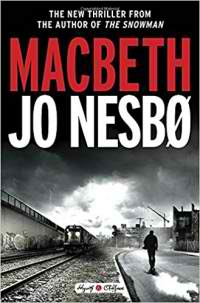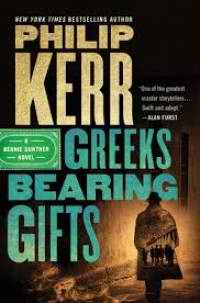Gone Girl by Gillian Flynn
 Saturday, May 5, 2018 at 10:53AM
Saturday, May 5, 2018 at 10:53AM 
Published by Crown on June 5, 2012
One thing I’ve learned from reading Amazon book reviews is that many readers say they dislike books unless they like (or can identify with) a main character. Why, then, was Gone Girl such a huge success? The two principal characters, Nick and Amy, are despicable. They are selfish, self-absorbed, dishonest, and (at least with regard to one of those characters) totally evil. Yet readers love this book, and with good reason. Maybe Gone Girl will help readers understand that good fiction does not depend upon likable, virtuous characters.
I came late to Gone Girl. It’s likely that the basics of the plot are well-known but it shouldn’t be spoiled for those readers who haven’t opened the book (or seen the movie), so I will say little about it. Nick and Amy are married. Amy’s parents made good money writing a series of children’s books called Amazing Amy. Sales have dwindled in recent years and Amy’s parents have borrowed from her trust fund. Meanwhile, Nick and Amy both lost their New York publishing jobs. They move to Nick’s hometown in the Midwest, where Nick uses the last of their savings to open a bar with his sister Go. Financial burdens place a strain on their marriage.
And then Amy disappears. Disorder in the home suggests that she might have been kidnapped, but the police think the scene has been staged. A police investigation uncovers a series of clues that suggest Nick has done away with Amy. That’s all I’ll say about the plot.
The story is creative and original. It alternates point of view between Nick and Amy and, in so doing, causes the reader to reevaluate the two characters. Neither are people you’d want to have as neighbors, much less friends. But they are realistic characters, imbued with the kind of detail that brings them to life in a reader’s mind. At first, I disliked the two characters because one was too perfect and the other was too self-indulgent. Later I disliked them for entirely different reasons. The way Gillian Flynn transforms the reader’s perception of both characters as the story moves forward is the novel’s most impressive feature.
Flynn offers some strong insights into the nature of marital relationships, and more generally into the nature of men and women as they are and as they pretend to be. I also like the way she skewers self-righteous media stars (one is clearly a stand-in for Nancy Grace) who vilify men despite the absence of proof or a fair trial, happily destroying lives for the sake of ratings.
Flynn's prose is filled with wickedly clever sentences. This is an absorbing novel from start to twisted finish. If there are two characters in recent fiction readers might love to hate more than Amy and Nick, I don’t know who they are. Gone Girl is proof that readers don’t need to love the characters to love a work of fiction.
RECOMMENDED



